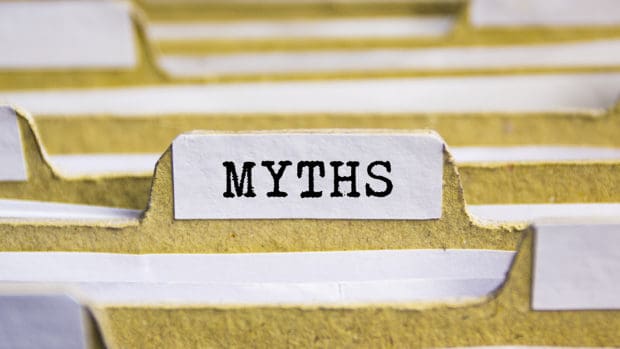Are past due notices from the hospital or doctor’s office piling up on your dining room table? It may be tempting to swipe the whole stack into the nearest trash can, but out-of-sight, out-of-mind isn’t a good strategy when it comes to medical bills – or any debt – that you can’t afford to pay.
If it’s any consolation, you’re not the only one afraid to open the mailbox because you might find another hefty medical bill or the dreaded “final notice” glaring back.
Around 61% of people with medical debt said they experience increased stress and worry, 49% admitted losing sleep over medical bills, and 23% weren’t confident they could pay off their medical debt, according to a recent report on working Americans from Salary Finance.
The Consumer Financial Protection Bureau (CFPB) just announced a rule barring medical debt from appearing on credit reports (effective 60 days from January 7, 2025). This rule will significantly altered the financial landscape for many Americans. While this is a major step towards reducing the burden of medical debt, it’s crucial to understand that non-payment of medical bills still has consequences.
When you don’t pay medical bills…
The bill could go to collections
If the hospital billing department is threatening to send your account to collections, pay attention. Even without the credit reporting impact, hospitals and doctors’ offices will still pursue payment. This may involve repeated calls and letters.
To avoid having your account sent to collections, work with the hospital or doctor’s office billing department to come up with a payment plan you can afford and then stick to it.
Find out: How to Deal With Medical Debt in Collections
You’ll have even more stress in your life
Relentless notices about past-due medical bills are bad enough, but having a collection agency on your back is even worse. Under the Fair Debt Collection Practices Act, agencies must obey certain restrictions on aggressive collection tactics. They’re not legally allowed to call you in the middle of the night, make an excessive number of phone calls in one day, or curse at you, for example.
Even so, some collection agencies still skirt the rules to collect a debt, hoping they’ll get away with it. When that happens, you’ll have to write letters asking them to stop illegal behaviors and maybe even hire an attorney to warn the agency to back off its illegal collection tactics.
Try to avoid this additional stress by offering the hospital or doctor’s office a lower lump sum payment to settle the debt or suggest a reasonable monthly payment arrangement.
You may face wage garnishment or liens
Hospitals and doctors can take several legal actions to recover unpaid medical bills, even with the recent CFPB rule barring medical debt from credit reports. They can file lawsuits against patients to recover the outstanding debt.
If a lawsuit is successful, a court may order the garnishment of wages, meaning a portion of the patient’s paycheck will be automatically deducted to pay the debt. Additionally, liens can be placed on a patient’s property, like their home or vehicle, or on their bank accounts, restricting their ability to sell or access those assets.
It’s crucial to remember that while medical debt itself won’t directly impact your credit score, the consequences of non-payment can still be severe.
You could come up with a solution to your medical debt
Do your best to work out a payment plan, settlement, or other arrangement with the hospital or health care provider as soon as you know you’re having trouble making payments.
Find out: 8 Strategies for Negotiating With the Hospital Billing Department
Depending on your circumstances, ability to manage credit responsibly, and credit score, paying the medical bill with a new credit card that has an introductory 0% APR for a year or longer could also be an option.
Just make sure you factor those monthly payments into your budget, don’t add to the credit card debt with new purchases and pay the balance off before the promotional period ends to avoid paying interest.
Is there a “hardship clause” to help me get out of medical debt I can’t pay?
Question: We have approximately $40k in debt due to a medical condition that caused us to go broke, lose our income and have no ability to pay. Is there any type of hardship clause to help our situation? Or anything we can do to get back on track?
– Amy B in Connecticut
Steve Rhode, the Get Out of Debt Guy, responds…
Having a financial hardship following a tragedy and unaffordable medical bills is more common than you would expect.
There is a “hardship clause” that will let you regroup and get a fresh start. In fact, it is the only debt relief option that will eliminate your debt in about ninety-days and cost around $1,500 in fees. It’s a Chapter 7 bankruptcy.
If the problems are now behind you and you have income coming in soon, then it is time to deal with the past financial misfortune and get yourself ready for a better financial future.
So many people misunderstand bankruptcy. In horrible financial times, it is not something to fear or be afraid of. It is a legal right you have access to. It is the fastest way out of problem debt for the least cost.
I think you should read, So You Are Going to File Bankruptcy. That’s Good News. Congratulations.
Things can and will get better fast as soon as you close the door on the unfortunate financial past and focus on making tomorrow better.
Debt.com can help you get the fresh start you need with bankruptcy.
How long does it take a medical bill to go to collections?
With debts like credit cards, the account only goes to collections after six to nine months of nonpayment. But that’s not the case with medical bills. Service providers often send unpaid bills to their collection department or a third-party collector quickly. In fact, even if you set up a payment plan, if you miss that payment by a few days the medical provider may send your account to collections.
Understanding the credit effects of medical collections
The CFPB ruling to remove medical bills from credit reports is great news for the nearly 15 million Americans who are collectively on the hook for $49 billion in medical bills.
“People who get sick shouldn’t have their financial future upended,” CFPB Director Rohit Chopra said in a press release. “The CFPB’s final rule will close a special carveout that has allowed debt collectors to abuse the credit reporting system to coerce people into paying medical bills they may not even owe.”
While this ruling offers significant relief, it doesn’t mean that you can just ignore medical bills. Hospitals and doctors can still pursue other avenues to recover payment, such as legal action. However, it won’t have an impact on your credit while you decide how to deal with the debt.
What can I do about prescription medical debt on my credit card?
Question: I have always paid my credit card statement early each month, and I have always bought pre-owned cars in cash. Besides a mortgage that is half paid off, I have no personal debt at all.
However, for the last three months, I have been afflicted with both breast cancer and an unrelated chronic condition. That sounds awful, and it is certainly not fun. But my prognosis is actually quite good, for which I Thank God.
Here is the financial issue: I need a variety of prescriptions that are costing me up to $1,200 a month out of pocket. That is not only outrageous, it is breaking my budget. I am now forced to run up my credit cards not only for the medication but because I will have to cut back my hours at work.
Suddenly, for the first time in my life, I have a $12,000 credit card balance, and it is only going to grow. Is there a solution here?
— Alexandra in New York
Howard Dvorkin answers…
I’m sorry to tell, Alexandra, that you have become a statistic. A recent, obscure report called Super Spending: U.S. Trends in High-Cost Medication Use states, “Between 2014 and 2016, the number of people representing annual medication costs of $50,000 or greater increased by 35 percent.”
That’s right, more and more Americans are facing prescription drug costs of more than $4,000 a month. In fact, three out of every 1,000 people in this study “accounted for more than 20 percent of total pharmacy spending.”
The solution to this problem is beyond me — or even the federal government and the medical industry. Those latter two entities will need to cooperate if a solution is to be found. I don’t know about you, but I’m not holding my breath.
So what can you and others like you do, Alexandra? There are options, which ironically don’t come from the healthcare sector.
Medical debt is a well-known problem in the world of credit counseling and debt management. In fact, it’s one of the leading causes of sudden debt — along with divorce, accidents, and natural disasters.
Of those leading causes, medical debt is among the most complex. It involves not only the actual expenses of treatment but also lost wages and even — as you’ve learned, Alexandra — the costs of prescription drugs that can drain a bank account long after the underlying illness is cured.
I’d urge anyone in this predicament to start with credit counseling. This is a free service from a nonprofit credit counseling agency. You’ll receive a debt analysis that will point you in the right direction. Check out Debt.com’s report, What Is Credit Counseling… And Why Do I Need It?
From there, you may end up in a debt management program, which isn’t free but will save you much more than it will cost. In the worst case, you can explore bankruptcy. You should also consider signing up for a prescription savings plan such as GoodRx which can save you money on prescription drugs.
The bottom line, Alexandra, is that you’re not alone. Even with strong family support, serious illness can make you feel like you’re all by yourself. When you add in the financial stress of medical debt to illness, that loneliness grows. I’m here to tell you: Help is out there, and it’s a phone call away. Call and Debt.com will match you with the right solution.
Do I really have to pay that doctor’s bill?
Question: I had a mole on my face and thankfully, it turned out not to be cancer. But now I owe $1,200 for the procedure and I can’t afford it. My boyfriend says just to ignore the bill and it’ll go away, but that doesn’t sound right.
Won’t that hurt my credit score? Won’t the doctor want his money?
— Kelly in Arizona
Howard Dvorkin CPA answers…
No to the first question, and an emphatic yes the the later.
The Consumer Financial Protection Bureau recently ruled that medical debt can no longer affect your credit score. But that doesn’t mean you should ignore those bills. Hospitals and doctors still want their money and may take legal action to get it.
So what can you do? Negotiate. Collection agencies aren’t known for their flexibility, so you want to negotiate with the doctor’s office or hospital before your debt gets to the collection agency. I’ve heard stories of former patients getting a third or even half of the debt waived.
To do that requires many uncomfortable conversations, however.
You’ll need to prove you can’t afford to pay the entire bill, which means disclosing your family income. It also means paying something, anything right now. You’re more likely to get a break if you offer to make frequent installment payments.
Of course, there are no rules here, so it’s up to the doctor or hospital. Some are very nice about these things. Others send your bill to collections immediately.
So the only crystal-clear advice is this: Be proactive. Call about that debt now.
Having trouble with your medical expenses? We can connect you to a debt expert.
Source:












